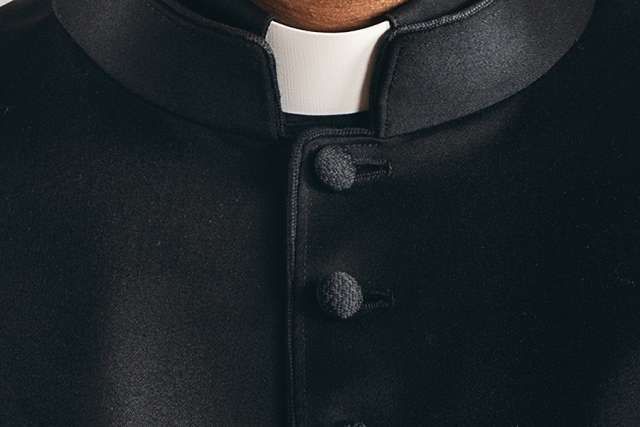The Vatican announced Friday that after being informed by U.S. officials of a possible breach of child pornography laws on the part of a Holy See diplomat, it has recalled the priest in question and an investigation has been opened. According to a Sept. 15 Vatican communique, on Aug. 21 the U.S. State Department notified the Vatican Secretariat of State, “through diplomatic channels, of a possible violation of laws relating to child pornography images by a member of the diplomatic corps of the Holy See accredited to Washington.”
The priest was recalled and is currently in Vatican City. Information regarding the findings of the U.S. State Department was passed along to the Vatican's Promoter of Justice, who opened an investigation “and has already commenced international collaboration to obtain elements relative to the case.”
The Vatican declined to identify the diplomat, or confirm his nationality. CNA contacted the apostolic nunciature in Washington D.C. for further details, but they declined to comment. According to the Associated Press, the U.S. State Department had asked the Vatican to lift the priest's diplomatic immunity, but the request was denied.
The priest will likely face a canonical proceeding, overseen by the Congregation for the Doctrine of the Faith, and a criminal trial overseen by the courts of the Vatican City State. The possession of child pornography is considered a “canonical crime” in the Church, and in 2010 Benedict XVI added it to the list of “most grave delicts,” meaning crimes dealt with directly by the Congregation for the Doctrine of the Faith and can result in dismissal from the clerical state. According to Article 4 of Law 8 of the Vatican City State, which was instituted by Pope Francis in 2013, child pornography is defined as “any representation, by whatever means, of a minor engaged in real of simulated explicit sexual activities as well as any representation of the sexual parts of a minor for primarily sexual purposes.”
Vatican law establishes six possible penalties, including hefty fines and jail time, for those found guilty of either staging, trading or offering child pornography to others:
1. Whoever stages pornographic shows using a minor, produces child pornography, or recruits or induces a minor to take part in pornographic shows, is punished with six to twelve years imprisonment and a fine from 25,000 to 250,000 euro.
2. The same penalty applies to whoever trades in child pornography.
3. Whoever, outside the cases foreseen in the preceding paragraphs, distributes, disseminates, transmits, imports, exports, offers or sells child pornography, through any means, even electronically, as well as whoever possesses child pornography for those purposes or otherwise distributes or disseminates knowledge or information directed at grooming or exploiting minors for sexual purposes, is punished with one to five years imprisonment and a fine from 2,500 to 50,000 euro.
4. Whoever, outside the cases foreseen in the preceding paragraphs, offers or supplies others, even free of charge, child pornography, is punished with up to three years imprisonment and a fine from 1,500 to 15,000 euro.
5. In the cases foreseen in paragraphs 3 and 4, the penalty is increased if a considerable quantity of pornographic material is involved.
6. Unless it constitutes a more serious offense, whoever participates in an exhibition of child pornography, is punished with up to two years imprisonment and a fine of up to 10,000 euro. Article 11 deals with all who possess child pornography, holding that: 1. Whoever, outside the cases foreseen in article 10, obtains or intentionally possesses child pornography, is punished with up to two years imprisonment and a fine from 1,500 to 10,000 euro. 2. The penalty is increased if a considerable quantity of pornographic material is involved.
To date, the most high-profile Vatican diplomat to ever be charged is the late Polish Archbishop Józef Weso?owski, former papal nuncio to the Dominican Republic. After allegations of sexual misconduct arose in 2013, Wesolowski resigned from his post, and in 2014 a canonical trial was opened against him by the tribunal of the Congregation for the Doctrine of the Faith, which found him guilty of sexual abuse. As a result, he was dismissed from the clerical state. The former prelate was to be indicted for the possession of child pornography in 2015, however, he died before the criminal trial began.
In a Sept. 15 statement, Cardinal Daniel N. DiNardo of Galveston-Houston, President of the United States Conference of Catholic Bishops, said the matter is “a serious issue,” and voiced hope that the Holy See would be “forthcoming” with further details. DiNardo said that while the bishops don't have all the facts, “we reaffirm that when such allegations occur, an immediate, thorough, and transparent investigation should begin in cooperation with law enforcement and immediate steps be taken to protect children.” “The protection of children and young people is our most sacred responsibility.”

